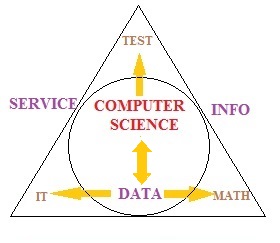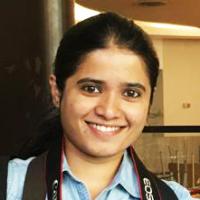Digital Electronics
Homework Help & Tutoring
We offer an array of different online Digital Electronics tutors, all of whom are advanced in their fields and highly qualified to instruct you.
Digital Electronics
I was introduced to the world of digital electronics when I was a graduate student in the chemistry department at Polytechnic University in Brooklyn. My thesis advisor had just purchased a xenon chloride excimer laser with a pulse repetition rate capability of one, two, or three times per second. There was another laser used in our experiment, an argon-ion laser whose continuous beam was alternately blocked and unblocked by a 60-Hz mechanical chopper. My job was to build a pulse generator, whose trigger was Argon-ion laser light from the 60-Hz chopper, that would select a pulse rate within the capability of the excimer laser and whose timing would bring light from both crossed laser beams to the sample at the same moment.
Fortunately, a professor down the hall was happy to give me a crash course in integrated circuit design and application. Within a few weeks, along with several visits to electronics shops and Radio Shack, my pulse generator was sending excimer laser light to the sample at just the right moment, twice every second. One good way to learn digital electronics is to build something you have an interest in or a need for. The rest will happen with a little help from your friends. For more on my graduate school experience, visit the 24HourAnswers.com blog article Reflections of a Ph.D.
There are a large number of online tutorials at The Multimedia Electronic Literature & Learning Internet Site, many of which include basic electronics. More tutorials can be found at Discover Circuits, and the site Electronics Tutorials has a thorough review of digital logic gates. For a more sophisticated look at the world of digital electronics, you should visit the IEEE Xplore Digital Library, where an enormous amount of advanced material can be found.
A good introductory course in digital electronics will cover many of the following topics:
- Fundamental concepts
- Number systems and codes
- Semiconductor devices - switching mode operation
- Digital logic families
- Combinatorial logic design
- Combinational logic design using MSI circuits
- FLIP-FLOPs
- Sequential logic design
- Timing circuits
- A/D and D/A converters
- Semiconductor memories
- Programmable logic devices
- Fundamentals of microprocessors
- Computer-Aided Design of digital systems
To fulfill our tutoring mission of online education, our college homework help and online tutoring centers are standing by 24/7, ready to assist college students who need homework help with all aspects of digital electronics. Our computer science tutors can help with all your projects, large or small, and we challenge you to find better online digital electronics tutoring anywhere.
College Digital Electronics Homework Help
Since we have tutors in all Digital Electronics related topics, we can provide a range of different services. Our online Digital Electronics tutors will:
- Provide specific insight for homework assignments.
- Review broad conceptual ideas and chapters.
- Simplify complex topics into digestible pieces of information.
- Answer any Digital Electronics related questions.
- Tailor instruction to fit your style of learning.
With these capabilities, our college Digital Electronics tutors will give you the tools you need to gain a comprehensive knowledge of Digital Electronics you can use in future courses.
24HourAnswers Online Digital Electronics Tutors
Our tutors are just as dedicated to your success in class as you are, so they are available around the clock to assist you with questions, homework, exam preparation and any Digital Electronics related assignments you need extra help completing.
In addition to gaining access to highly qualified tutors, you'll also strengthen your confidence level in the classroom when you work with us. This newfound confidence will allow you to apply your Digital Electronics knowledge in future courses and keep your education progressing smoothly.
Because our college Digital Electronics tutors are fully remote, seeking their help is easy. Rather than spend valuable time trying to find a local Digital Electronics tutor you can trust, just call on our tutors whenever you need them without any conflicting schedules getting in the way.






